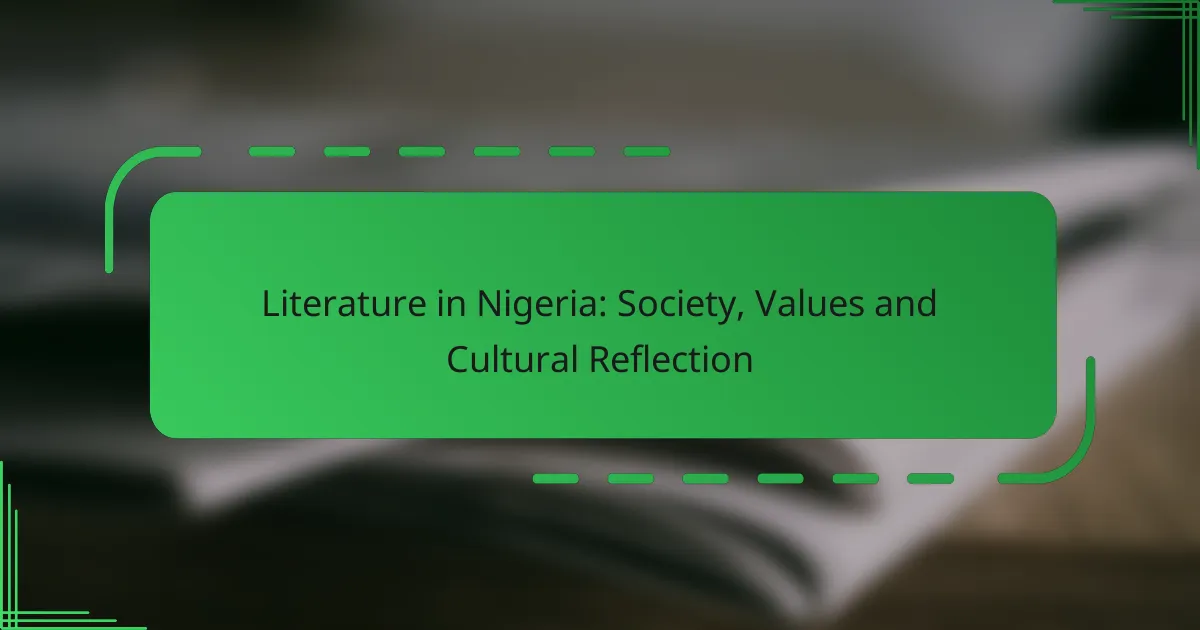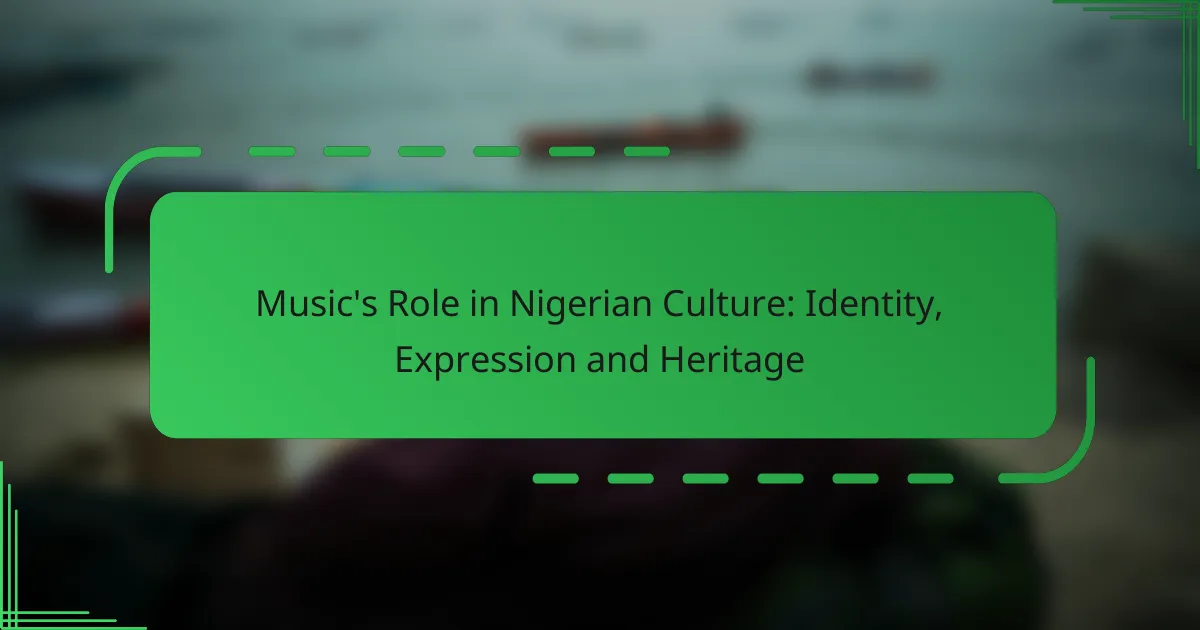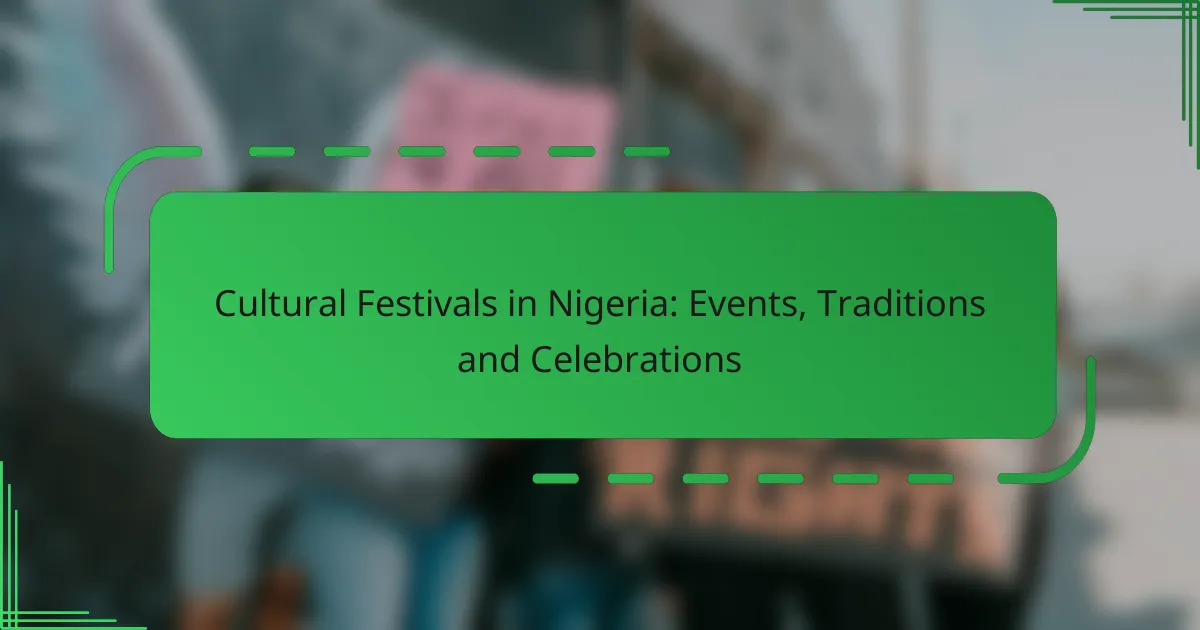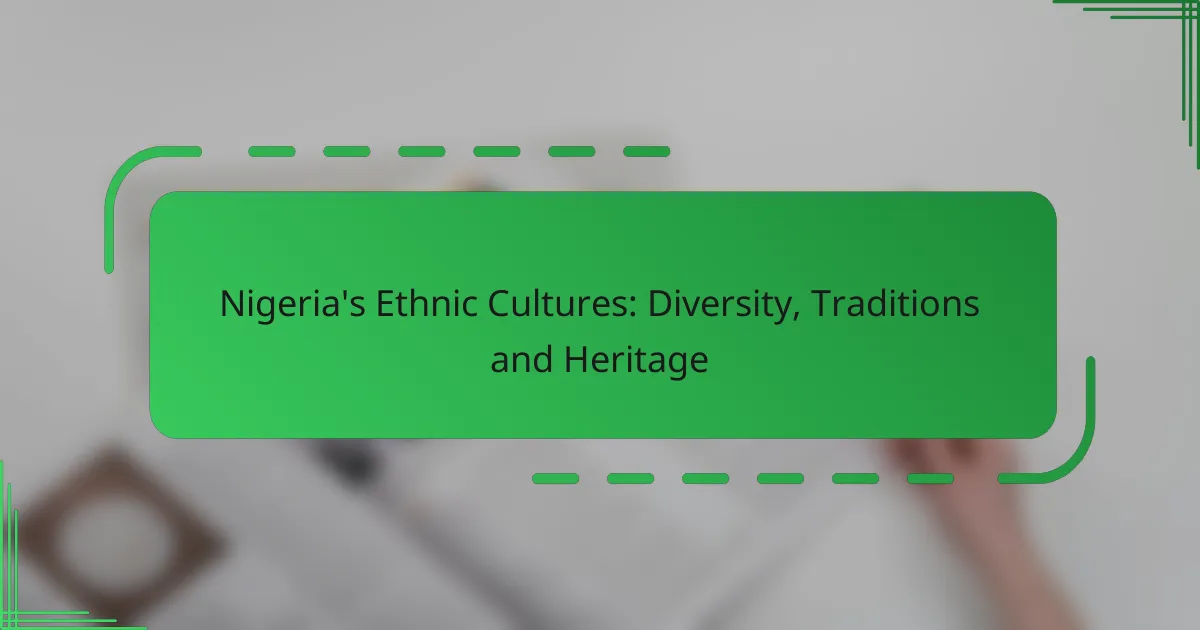Nigerian literature serves as a profound reflection of the country’s societal values, intricately weaving together themes of cultural identity, social issues, and historical context. Through the works of influential authors like Chinua Achebe and Chimamanda Ngozi Adichie, it captures the complexities of post-colonialism, gender roles, and the ongoing tension between tradition and modernity, offering valuable insights into the aspirations and struggles of its people.
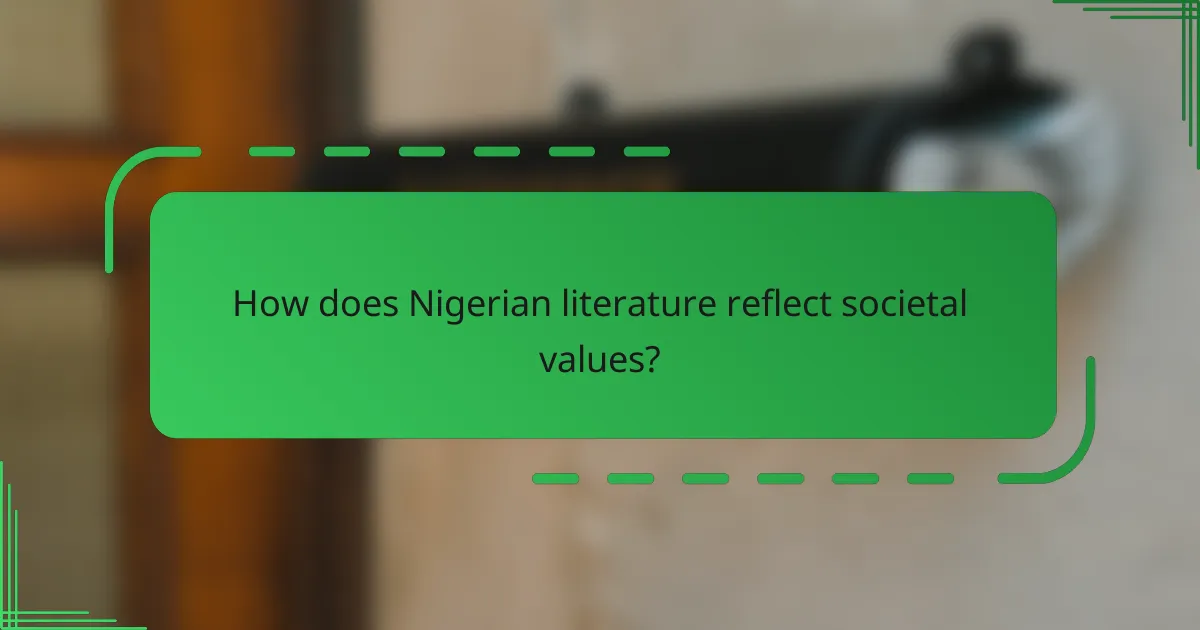
How does Nigerian literature reflect societal values?
Nigerian literature serves as a mirror to the country’s societal values, showcasing the complexities of cultural identity, social issues, and historical influences. Through various forms, it articulates the beliefs, struggles, and aspirations of its people, making it a vital component of Nigeria’s cultural landscape.
Exploration of cultural identity
Nigerian literature often delves into the rich tapestry of cultural identity, highlighting the diverse ethnic backgrounds and traditions within the country. Authors like Chimamanda Ngozi Adichie and Wole Soyinka explore themes of belonging and the challenges of navigating multiple identities in a rapidly changing society.
Through storytelling, these writers emphasize the importance of heritage and the impact of globalization, prompting readers to reflect on their own cultural roots and the significance of preserving them.
Representation of social issues
Nigerian literature frequently addresses pressing social issues such as corruption, inequality, and gender dynamics. Works like “Half of a Yellow Sun” by Adichie illustrate the effects of war and displacement, while other narratives tackle the struggles of women in patriarchal societies.
By portraying these realities, literature not only raises awareness but also fosters discussions that can lead to social change, encouraging readers to engage with the challenges faced by their communities.
Influence of colonial history
The legacy of colonialism is a recurring theme in Nigerian literature, shaping narratives that critique power dynamics and cultural imposition. Authors often reflect on the impact of colonial rule on identity, governance, and societal structures, as seen in works by writers like Buchi Emecheta.
This exploration of history allows readers to understand the complexities of contemporary Nigerian society and the ongoing effects of colonialism on national identity and self-perception.
Role of oral traditions
Oral traditions play a crucial role in Nigerian literature, serving as a foundation for storytelling and cultural transmission. Folktales, proverbs, and oral histories are woven into written works, preserving the wisdom and values of various communities.
This integration of oral elements enriches the narrative, providing depth and authenticity while fostering a connection between generations and emphasizing the importance of oral heritage in modern literature.
Impact of modernity
Modernity has significantly influenced Nigerian literature, introducing new themes and styles that reflect contemporary life. Writers are increasingly addressing issues such as urbanization, technology, and globalization, showcasing the evolving nature of Nigerian society.
By engaging with modern challenges, literature not only captures the current zeitgeist but also offers insights into the future direction of cultural and societal values in Nigeria.

What are key themes in Nigerian literature?
Nigerian literature often explores themes such as post-colonialism, gender roles, corruption, and the tension between tradition and modernity. These themes reflect the complexities of Nigerian society and its cultural values, offering insights into the nation’s struggles and aspirations.
Post-colonialism
Post-colonialism is a central theme in Nigerian literature, examining the effects of colonial rule on identity, culture, and society. Authors like Chinua Achebe and Wole Soyinka delve into the lingering impacts of colonialism, highlighting the struggle for self-definition and cultural reclamation.
Literature in this context often critiques the remnants of colonial power structures and advocates for a renewed sense of national identity. Works may explore the dichotomy between traditional values and Western influences, reflecting the ongoing negotiation of cultural heritage.
Gender roles
Gender roles are critically examined in Nigerian literature, revealing the complexities and challenges faced by women in a patriarchal society. Writers such as Buchi Emecheta and Chimamanda Ngozi Adichie address issues of oppression, empowerment, and the quest for equality.
These narratives often highlight the resilience of women and their pivotal roles in family and community life. By portraying diverse female experiences, Nigerian literature contributes to broader discussions on gender and social justice.
Corruption and governance
Corruption and governance are prevalent themes in Nigerian literature, reflecting the political realities of the nation. Many authors use their works to critique corrupt practices and the failure of leadership, as seen in novels by authors like Sefi Atta and Helon Habila.
These stories often depict the struggles of ordinary citizens against a backdrop of political instability and ethical dilemmas. Literature serves as a powerful tool for social commentary, urging readers to confront and challenge systemic corruption.
Tradition vs. modernity
The tension between tradition and modernity is a recurring theme in Nigerian literature, showcasing the clash between cultural heritage and contemporary influences. Authors explore how modernization affects social structures, family dynamics, and individual identities.
Through various narratives, literature illustrates the challenges of balancing traditional values with the demands of a rapidly changing world. This theme resonates with many Nigerians as they navigate their cultural identities in an increasingly globalized society.
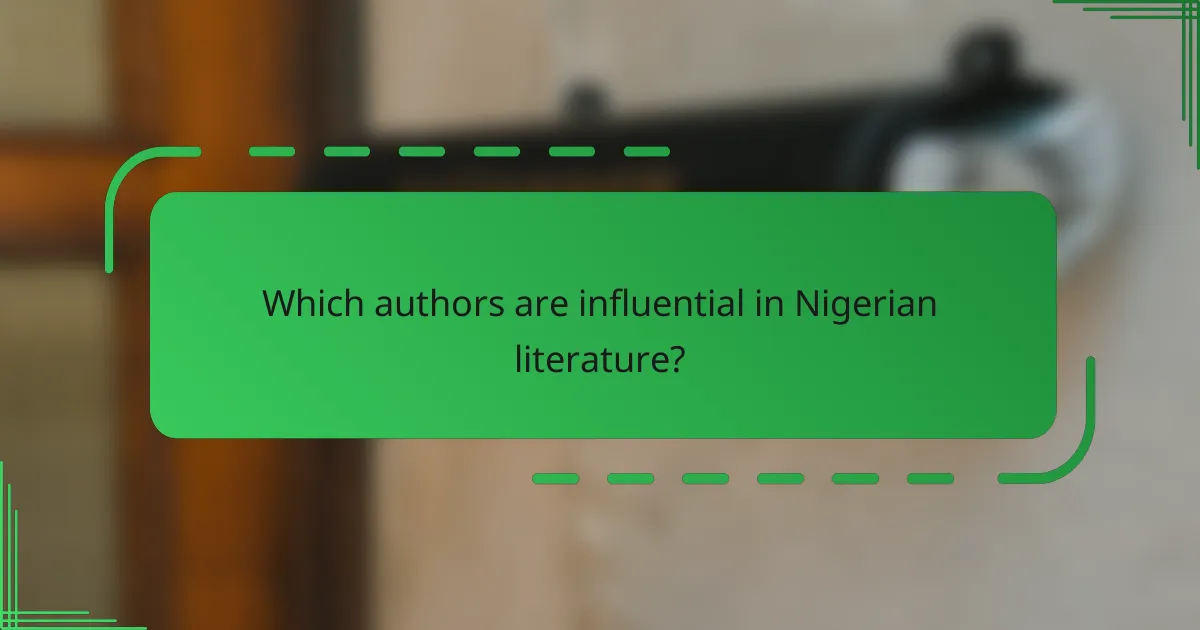
Which authors are influential in Nigerian literature?
Nigerian literature boasts several influential authors who have shaped its narrative and cultural identity. Key figures include Chinua Achebe, Wole Soyinka, Buchi Emecheta, and Chimamanda Ngozi Adichie, each contributing unique perspectives and themes that reflect Nigerian society and values.
Chinua Achebe
Chinua Achebe is often regarded as the father of modern African literature. His seminal work, “Things Fall Apart,” explores the impact of colonialism on traditional Igbo society, highlighting the clash between indigenous cultures and Western influences.
Achebe’s writing emphasizes the importance of storytelling in preserving cultural identity. He often critiques the effects of colonialism and advocates for a return to African values, making his work essential for understanding Nigeria’s literary landscape.
Wole Soyinka
Wole Soyinka, the first African laureate of the Nobel Prize in Literature, is known for his plays, poetry, and essays that address political oppression and human rights. His works, such as “Death and the King’s Horseman,” delve into the complexities of Yoruba culture and the consequences of colonial rule.
Soyinka’s literature often combines traditional African storytelling with contemporary themes, making his voice both powerful and relevant. He uses his platform to challenge authority and advocate for social justice, reflecting the struggles faced by Nigerians.
Buchi Emecheta
Buchi Emecheta’s novels focus on the experiences of women in Nigerian society, often addressing themes of gender, motherhood, and identity. Her notable work, “The Joys of Womanhood,” portrays the challenges faced by women in a patriarchal society while celebrating their resilience.
Emecheta’s writing provides a critical perspective on the intersection of culture and gender, making her an essential voice in Nigerian literature. Her stories resonate with many readers, offering insight into the lives of women navigating societal expectations.
Chimamanda Ngozi Adichie
Chimamanda Ngozi Adichie has gained international acclaim for her novels, essays, and short stories that explore themes of identity, feminism, and post-colonialism. Works like “Half of a Yellow Sun” and “Americanah” examine the complexities of Nigerian life and the diaspora experience.
Adichie’s narrative style blends personal and political elements, making her storytelling both relatable and thought-provoking. She actively engages with contemporary issues, advocating for gender equality and cultural understanding, which resonates with a global audience.
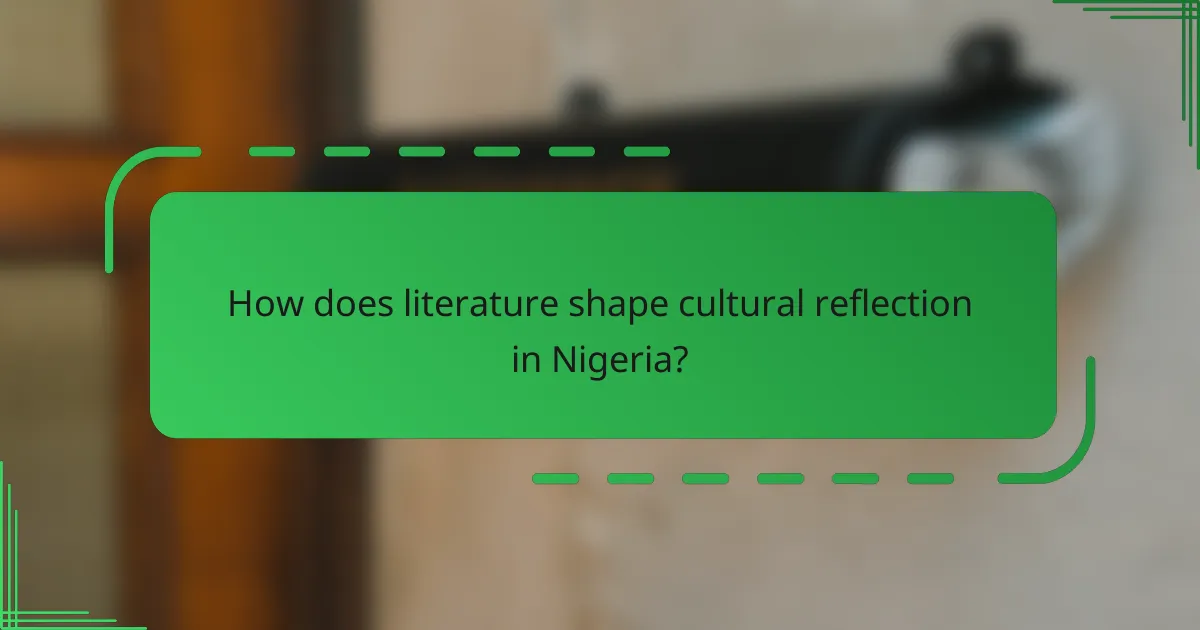
How does literature shape cultural reflection in Nigeria?
Literature in Nigeria plays a crucial role in shaping cultural reflection by expressing the values, beliefs, and experiences of its diverse societies. Through storytelling, poetry, and drama, Nigerian writers explore themes that resonate with the collective identity and social dynamics of the nation.
Promotion of national identity
Nigerian literature fosters a sense of national identity by highlighting the unique cultural heritage and historical narratives of various ethnic groups. Works by authors like Chinua Achebe and Wole Soyinka emphasize the importance of understanding one’s roots and the shared experiences that bind the nation together.
By incorporating local languages, proverbs, and traditional storytelling techniques, literature reflects the rich tapestry of Nigeria’s cultural landscape. This not only enhances pride in national identity but also encourages unity among the country’s diverse populations.
Encouragement of social change
Literature serves as a powerful tool for encouraging social change in Nigeria by addressing pressing issues such as corruption, inequality, and human rights. Writers often use their platforms to critique societal norms and advocate for reform, inspiring readers to engage in activism.
For instance, contemporary authors like Chimamanda Ngozi Adichie tackle themes of gender equality and social justice, prompting discussions that can lead to tangible change. By presenting relatable characters and situations, literature can motivate individuals to reflect on their roles in society and the need for progress.
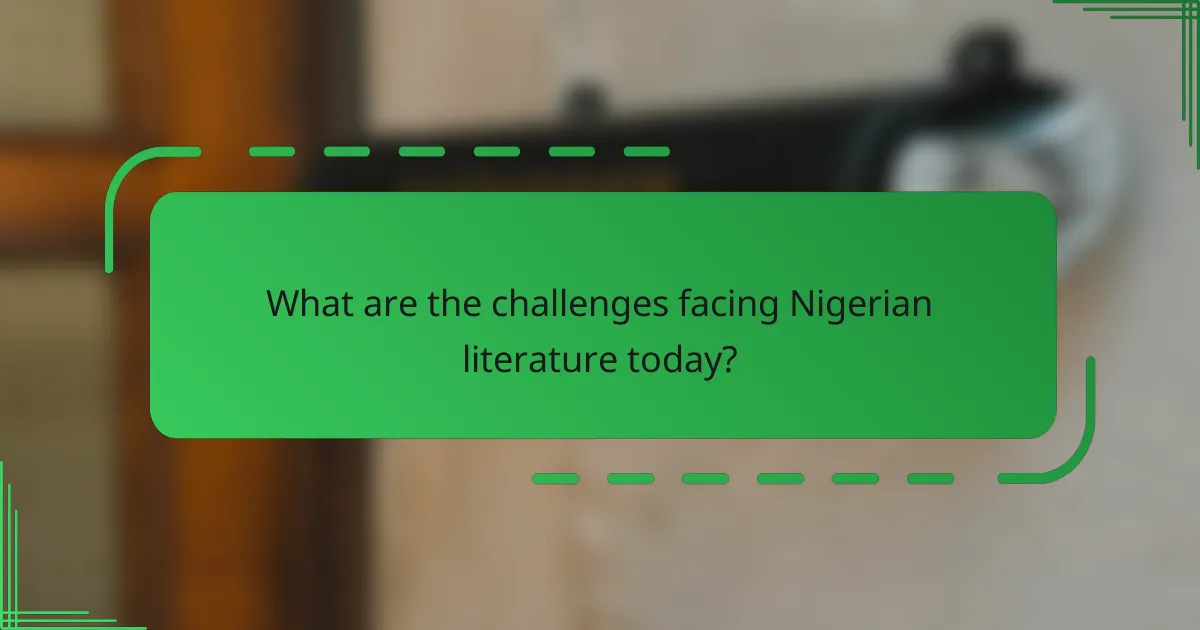
What are the challenges facing Nigerian literature today?
Nigerian literature faces several challenges, including limited access to publishing resources, inadequate funding, and a lack of widespread readership. These factors hinder the growth and visibility of literary works, impacting authors’ ability to reach audiences both locally and internationally.
Access to publishing resources
Access to publishing resources is a significant hurdle for many Nigerian writers. The publishing industry in Nigeria is often underfunded, leading to limited opportunities for authors to publish their works. Many writers resort to self-publishing, which can be costly and may not guarantee quality production.
Additionally, the availability of printing presses and distribution networks is uneven across the country. Writers in urban areas may have better access to these resources compared to those in rural regions. This disparity can limit the diversity of voices and stories that reach readers.
To navigate these challenges, aspiring authors should consider collaborative publishing models or seek partnerships with established publishers. Utilizing digital platforms for e-books can also provide a more accessible route to publication and distribution, allowing authors to reach a broader audience without the traditional barriers of print publishing.
